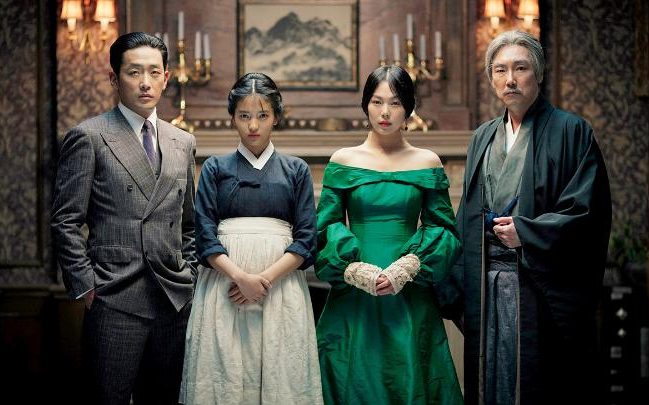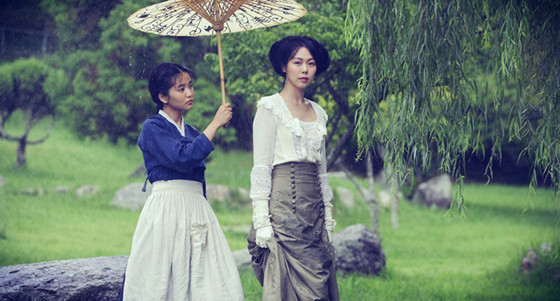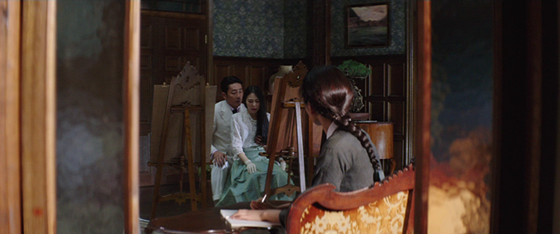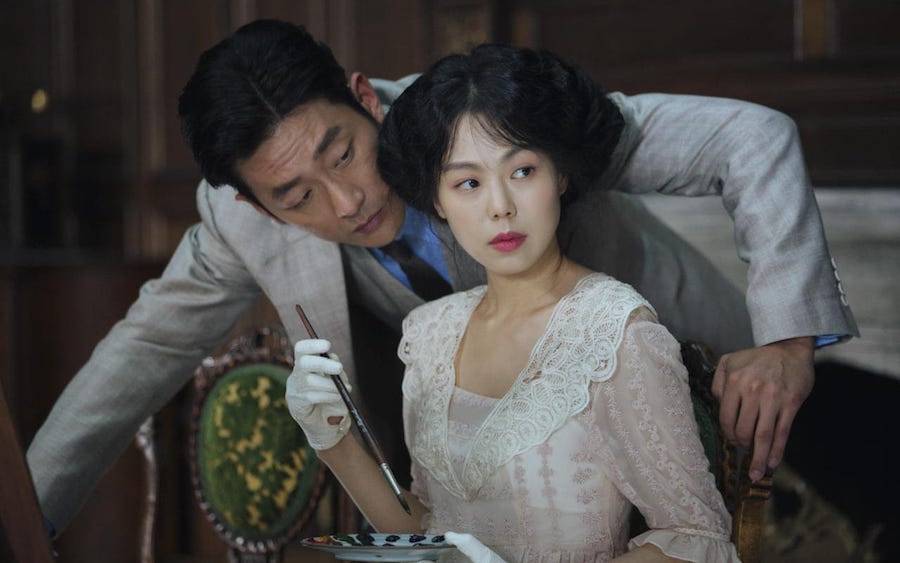
Park Chan-wook’s return to S. Korea from Hollywood, where he directed “Stoker”, also signaled his return to masterpieces, with “The Handmaiden” reaching the standards of his best films, like “Oldboy”. His passage from Hollywood did not have the same success his previous works had; however, Park seems to have implemented the aesthetics usually associated with American films in “The Handmaiden.”
In the process, he has created a completely new amalgam, which seems to have taken the best from his unique style and Hollywood aesthetics, particularly regarding maximalism in terms of image and dialogue. The outcome is magnificent, a truly impressive film in all aspects. The awards it has already received from festivals and competitions all around the world is a testament to the fact.
Here are 9 reasons that explain why “The Handmaiden” is a masterpiece.
Please take caution, before reading, because the list contains many spoilers.
1. Intricate script with many plot twists

The script is based on the novel “Fingersmith” by Sarah Waters and takes place in Korea of the 1930s, with the country under Japanese rule. Con man “Count” Fujiwara has managed to insert himself into the very secluded circle of Kouzuki, an eccentric hedonist who has become the man in charge of a very large estate, and plans to marry his niece, Lady Hideko, the actual heiress of the family’s vast fortune.
Fujiwara devices an intricate plan to “steal” Lady Hideko for himself, and asks the help of a ragtag girl, Sook-hee, a petty criminal who lives with her aunt’s family, all of whom are of the same “profession.” The plan is for the girl to become Lady Hideko’s handmaiden, and to help Fujiwara seduce her. However, things do not go as planned, since an attraction is formed between the two girls, as the many plot twists result in a much-unexpected story.
Park stayed close to the structure of the book, which is split in three segments, with the first and the third telling the story from Sook-hee’s perspective, and the second one from Lady Hideko’s. However, each segment presents new perspectives on the facts, as the disclosures are continuous and shed new light on what is actually happening.
In that fashion, Park managed to get the most from his script, and to keep the agony and the interest of the spectator unwavering until the last moment, while retaining the element of shock.
2. Intelligent irony

One of Park Chan-wook’s most distinct traits could not be missing from this film. His subtle and intelligent irony is once more present, and exemplified by the fact that the house combines Japanese with European-style architecture, in a hideous manufacture that mocks the fact that rich people can do whatever they have in their minds, but that does not mean that they also have taste.
The irony towards the aristocracy also extends to the whole concept of the underground erotic literature club, which makes fun of the rich individuals’ tendency to always search for something new and extreme in order to overcome their boredom. The same applies to the depiction of their world as one filled with criminals and fortune hunters.
3. Dark and grotesque humor

Park always finds space for some dark humor in his films, even in the most dire of situations, and “The Handmaiden” is not an exception. The scene in the beginning of the film, where Sook-hee tries to steal from Fujiwara is a distinct sample. The one, however, where this tendency finds its apogee comes near the end, when Kouzuki is torturing Fujiwara. The latter, being a masochist, actually indulges in his maiming, in a scene that emits humor and grotesqueness at the same time.
The fact that most of the characters occasionally act like caricatures, with Kozuki inside his perversion and Sook-hee in her frustration exemplifying this trait, also moves towards the same direction.
4. Impressive acting

The cast of the movie is definitely one of its biggest assets, chiefly because every role involves a transformation that the actors present elaborately. In that fashion, Ha Jung-woo plays the part of the cocky, seducing con-man Fujiwara to perfection. His transformation from a man so sure of himself to one utterly perplexed about what is really going on is his performance’s biggest trait.
Kim Tae-ri is great as Sook-hee, a petty criminal who falls in love and cannot hide her frustration regarding Fujiwara’s treatment of Lady Hideko, as she acts like a true caricature. Her transformation from a mischievous but somewhat naive individual to a conspiring planner is also great.
Cho Jin-woong has a distinctly cult role, as the eccentric uncle Kouzuki, whose perversion is evident even from his appearance and the way he speaks. Despite him having the only one of the roles that does not require any kind of transformation, he manages to stand out as he permanently acts as a perverse caricature.
The one who truly stands apart, though, is Kim Min-hee as Lady Hideko, who manages to portray a variety of different sentiments and notions, as she continuously transforms throughout the segments, from a naive, fragile rich girl to a cruel and calculating mastermind. The visual prowess of the production is exemplified by her almost porcelain beauty, as she frequently functions as a twisted and disturbed doll.